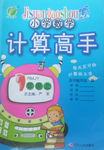题目内容
For millions of Facebook users,choosing which photo to use for an online profile is an important decision. According to a study by researchers at the UT Dallas Center,the photos we select may reflect individual preferences,but they also appear to reflect more deeply rooted,unconscious cultural differences. Previous research has shown that culture can affect not only language and custom,but also how we experience the world and process information. Western cultures,for example,condition people to think of themselves as highly independent entities (实体) ,whereas East Asian cultures stress collectivism and interdependence.
Dr. Denise Park,codirector of the Center at UT Dallas,and former graduate student Dr. Chih-Mao Huang of the University of Illinois,were curious about whether these patterns of cultural influence extend to cyberspace (网络空间) .In a paper published in the International Journal of Psychology,they examined the profile photographs of more than 500 active Facebook users from the United States and East Asia. Overall,they found that profile photos of Americans are more likely to focus on the individual's face,while the profiles of East Asians tend to less emphasize the face and include more background features. Americans also show greater smile intensity compared to East Asian Facebook users.
The findings show marked cultural differences in the focus of attention among East Asian and American Facebook users. Moreover,they echo previous research on cultural influences on visual perception (感知) ,attention,and reasoning in the offline world.
"We believe these findings relate to a cultural bias (偏见,偏差) to be more individualistic and independent in the US and more communal (公共的) and interdependent in Asia," said Park.
The research also found that cultural influences over our selfpresentation online can shift over time and from place to place. In one of the study samples,Americans studying in Japan and Japanese studying in the US both showed a tendency to adjust their profile photos to the general preferences of their host country.
"Facebook constitutes an extended social context in which personal profiles mirror various individual characteristics,private thoughts,and social behaviors," noted Huang. " As such,the study presents a new approach to investigate cognition and behaviors across cultures by using Facebook as a data collection platform."
( ) 1. The underlined word "condition" in the first paragraph probably means .
A. advise B. instruct C. shape D. forbid
( ) 2. We can know from the passage that Mongolians probably emphasize .
A. cultural influences B. social behaviors
C. independent existence D. collective power
( ) 3. It can be inferred that a Korean studying in the US is likely to .
A. use a picture of his face on Facebook
B. adjust to American preferences quickly
C. change his profile photos from time to time
D. put up a photo of his apartment on Facebook
( ) 4. According to Dr. Huang,Facebook can help to .
A. make up a more extended social context
B. study the diversity of worldwide cultures
C. promote communication between east and west
D. combine different cultures from different aspects
1. C该题为词义判断题,根据上下文,作者主要想传达文化传统等对人思维的影响,所以选shape ,表塑造。
2. D该题为细节考察题,根据第1段最后一句话whereas East Asian cultures stress collectivism and interdependence而Mongolians (蒙古人) 为亚洲人,可得出答案。
3. A该题为细节考察题,根据第5段Americans studying in Japan and Japanese studying in the US both showed a tendency to adjust their profile photos to the general preferences of their host country.可推断出结果。
4. B该题为细节考察题,根据第1段but they also appear to reflect more deeply rooted,unconscious cultural differences可得出结果。

 计算高手系列答案
计算高手系列答案